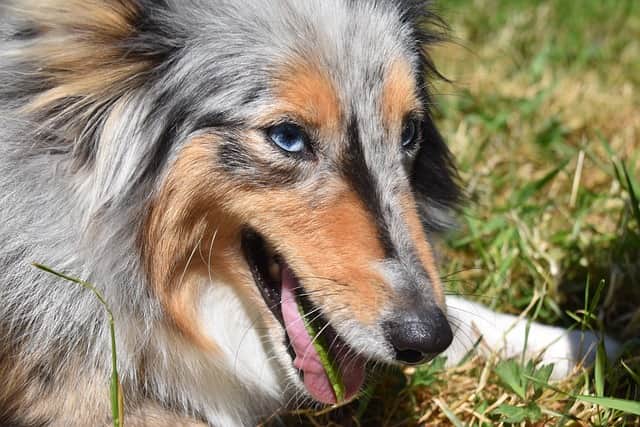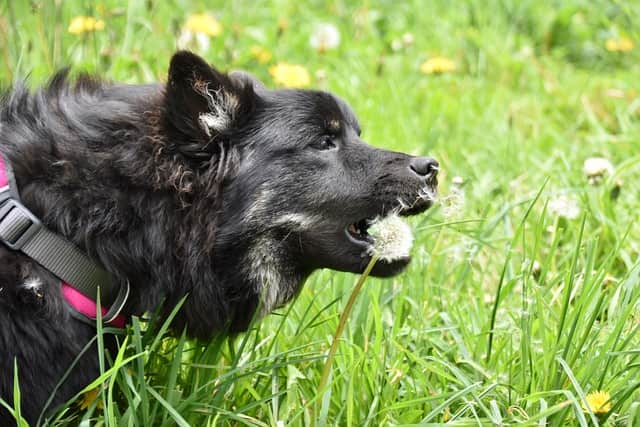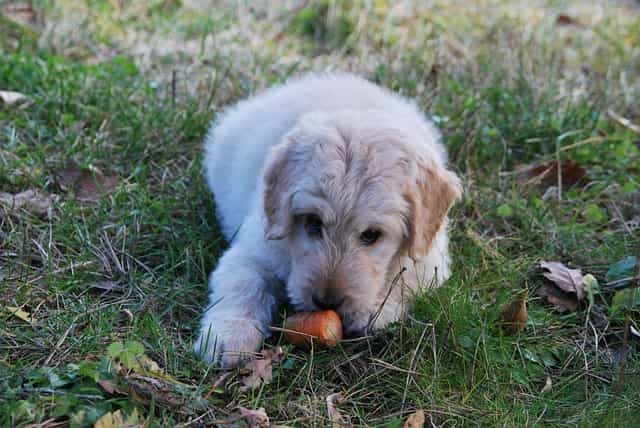
Image by JackieLou DL from Pixabay
Dogs are known for their curious nature and their tendency to eat just about anything they can get their paws on. One of the most common things that dogs seem to enjoy eating is grass. While it may seem like a strange behavior, it is actually quite common among dogs of all ages and breeds.
Many pet owners wonder why their dogs eat grass and whether or not it is harmful to their health. Some people believe that dogs eat grass because they are trying to induce vomiting or relieve an upset stomach, while others believe that it is simply a natural behavior that dogs engage in for a variety of reasons.
In this article, we will explore the reasons why dogs eat grass and what you can do to prevent this behavior if necessary. We will also discuss whether or not eating grass is harmful to your dog’s health and what steps you can take to ensure that your furry friend stays healthy and happy.
Theories
There are several theories as to why dogs eat grass. Some of the most commonly accepted theories include:
Natural Instincts
One theory suggests that dogs eat grass due to their natural instincts. Dogs are descendants of wolves, who are known to eat grass to help with digestion. It is believed that dogs may have inherited this behavior from their wolf ancestors.
Dietary Deficiencies
Another theory suggests that dogs eat grass to supplement their diet with nutrients that they may be lacking. Grass is a good source of fiber and other nutrients that dogs may not be getting enough of in their regular diet.
Upset Stomach
Finally, some experts believe that dogs eat grass to help soothe an upset stomach. Grass can help induce vomiting, which may help to relieve digestive issues. Additionally, the act of eating grass may help to stimulate the production of digestive enzymes.
While these theories are widely accepted, there is still much debate over why dogs eat grass. Some experts believe that dogs simply enjoy the taste of grass, while others believe that it may be a combination of these theories.
Behavioral Reasons

Image by JackieLou DL from Pixabay
Boredom or Anxiety
Dogs may eat grass out of boredom or anxiety. If a dog is not getting enough exercise or mental stimulation, it may resort to eating grass to alleviate its boredom. Similarly, if a dog is experiencing anxiety or stress, it may turn to grass as a form of self-soothing.
If you suspect your dog is eating grass due to boredom or anxiety, it’s important to address the root cause of the behavior. Providing your dog with adequate exercise, mental stimulation, and attention can help alleviate boredom. If your dog is experiencing anxiety, consult with a veterinarian or a professional dog behaviorist to develop a plan to help your dog manage its stress.
Attention-Seeking Behavior
Sometimes dogs eat grass as a way to get attention from their owners. If a dog has learned that eating grass results in attention from its owner, it may continue the behavior even if it doesn’t necessarily enjoy eating grass.
If you suspect your dog is eating grass as a form of attention-seeking behavior, it’s important to provide your dog with attention in other ways. Spend time playing with your dog, going for walks, or engaging in other activities that your dog enjoys. This can help redirect your dog’s behavior and reduce its desire to eat grass for attention.
Medical Causes

Image by Sanna Jågas from Pixabay
Intestinal Parasites
One of the reasons why dogs eat grass could be due to the presence of intestinal parasites. Parasites such as hookworms, roundworms, and tapeworms can cause gastrointestinal discomfort in dogs and make them crave grass. These parasites can also cause other symptoms such as vomiting, diarrhea, and weight loss. If you suspect that your dog has intestinal parasites, it is important to take them to the vet for proper diagnosis and treatment.
Gastrointestinal Disorders
Dogs with gastrointestinal disorders such as inflammatory bowel disease (IBD) or gastroenteritis may also eat grass as a way to soothe their upset stomachs. These conditions can cause inflammation in the digestive tract and lead to symptoms such as vomiting, diarrhea, and abdominal pain. If your dog has been diagnosed with a gastrointestinal disorder, your vet may recommend a special diet or medication to manage their symptoms.
Pancreatitis
Pancreatitis is a condition where the pancreas becomes inflamed and can cause abdominal pain, vomiting, and diarrhea. Dogs with pancreatitis may also eat grass as a way to alleviate their symptoms. This condition can be caused by a variety of factors such as obesity, high-fat diets, and certain medications. If you suspect that your dog has pancreatitis, it is important to seek veterinary care immediately.
Overall, while there are medical reasons why dogs may eat grass, it is important to note that not all grass-eating behavior is due to an underlying health problem.
Conclusion

Image by Mojca-Peter from Pixabay
While the exact reason why dogs eat grass is not completely understood, there are several theories as to why they do it. Additionally, some dogs may eat grass to aid in digestion or to obtain nutrients that may be lacking in their regular diet.
It is important to note that while eating grass is generally not harmful to dogs, it can sometimes lead to digestive issues such as vomiting or diarrhea. If you notice your dog eating grass frequently or exhibiting any signs of discomfort after eating grass, it may be best to consult with your veterinarian to rule out any underlying health issues.